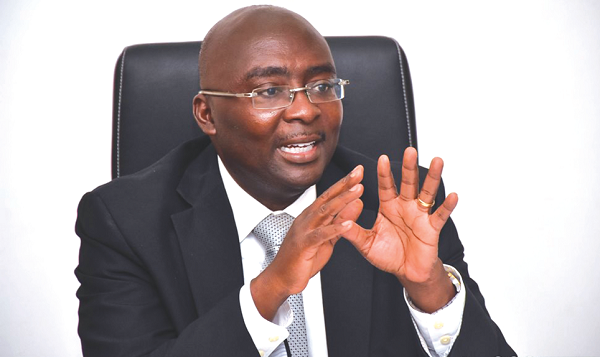
Dr Bawumia clarifies establishment of new mining body
The Vice-President, Dr Mahamudu Bawumia, has given an assurance that the establishment of the proposed Ghana Integrated Bauxite and Aluminium Development Authority is not intended to be another mining regulatory body.
He explained that the purpose of the authority was to promote and facilitate the development of an integrated aluminium industry in Ghana which gave the authority to enter into joint ventures with other players.
Dr Bawumia said this when the Board of the Minerals Commission, led by its Chairman, Mr S. K. Boafo, paid a courtesy call on him at the Jubilee House.
According to the vice-president, the Minerals Commission would continue to carry its regulatory mandate established under the Constitution of Ghana and urged the board to continue to champion the cause.
Illegal mining
On illegal mining, Dr Bawumia noted that on his recent trip to the Western Region, specifically, Tarkwa, Prestea and Wassa Akropong, varied concerns were raised by the people and chiefs regarding the extensive damage of the environment by these illegal miners who used excavators and Chanfans, an alluvial mining vessel.
He, however, expressed the hope that the government’s flagship blueprint, the Multi-sectorial Mining Integrated Project (MMIP), when launched, would help resolve challenges in the small-scale mining sub-sector.
Responding to an appeal by Mr Boafo for the government to take a second look at the Value Added Tax (VAT) on exploration operations and allied services in the sector, the vice-president indicated that discussions were far advanced to reach a decision on the issue, explaining that it had become clear that “this is a disincentive to existing and prospective investors in the sector.”
Initiatives
Outlining some of the initiatives of the board since its inauguration last November, Mr Boafo noted that work had commenced to restructure the commission to better position it to effectively perform its functions as the regulator of the country’s mining sector.
According to him, progress had been made in that regard with the re-alignment of technical officers in the departments of the commission, the creation of two additional regional offices, increasing existing mining districts from nine to 12 and intensifying monitoring and inspection of mining and exploration companies.
He further drew the vice-president’s attention to key issues in the mining sector that required the government’s immediate intervention. Among them were proposal for industrial mineral rights agreements to be exempted from parliamentary ratification; massive encroachment of quarry mine sites across the country and the poor state of railway infrastructure, especially the western railway line, which was the primary mode of hauling bulk minerals to the Takoradi Port.
